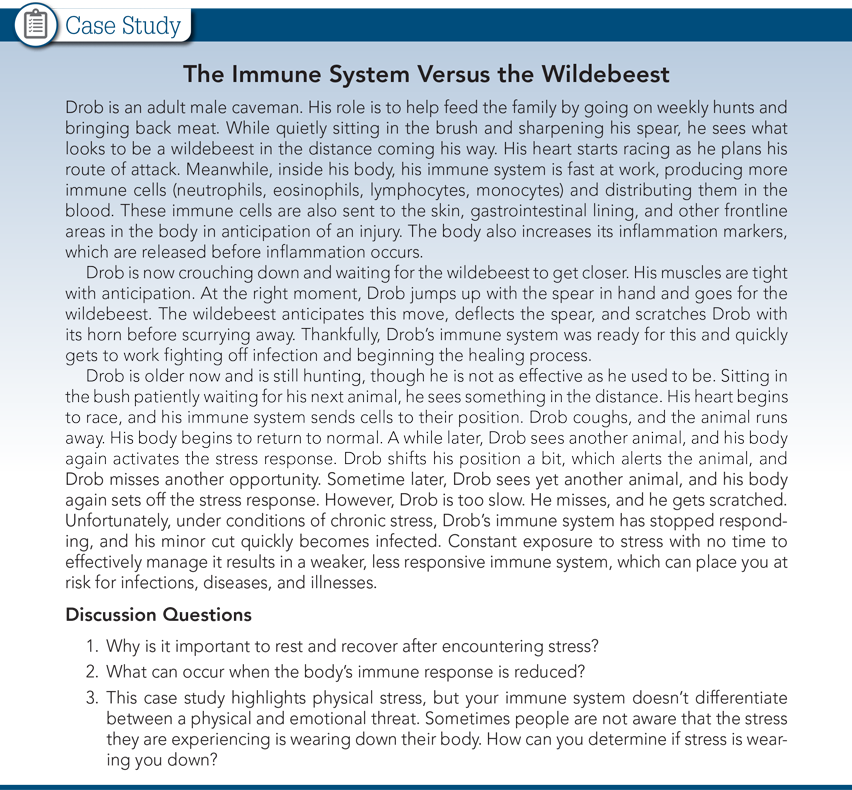Immune System
This is an excerpt from Stress Management With HKPropel Access by Pardess Mitchell.
The immune system includes the lymphatic system, spleen, bone marrow, white blood cells, antibodies, and thymus and is responsible for detecting and fighting infection in the body. When it recognizes antigens, or foreign substances, it triggers an attack. The immune system has two different attacking mechanisms: The innate immune system is generalized and used for all interactions with antigens. The adaptive immune system is more targeted and uses specific antibodies to attack specific antigens. The immune system stores information about previously encountered antigens so that when the body encounters the same antigen, the antibodies recognize it and are able to deal with them effectively. The purpose of a vaccine is for the immune system to create antibodies of the targeted disease to be able to fight it effectively.
Your body has been trained to respond to stress as if it is a physical threat. As a result, it prepares itself for a battle: During acute stress, the body increases immune cells and sends them to areas in the body most likely to be involved in an injury. However, most cases of modern stress do not involve a physical threat.
Chronic stress can decrease the functioning of the immune system, making you more susceptible to getting sick and less able to fight off diseases, infections, and injuries when they occur. The continued release of cortisol suppresses the proteins needed to make immune cells (B and T cells). Moreover, the immune system begins to ignore the cortisol’s signals and stops responding to those signals. However, inflammation markers still continue to increase in response to chronic stress, which can also harm the body and place you at higher risk for other conditions such as cancer, cardiovascular disease, and obesity. For example, stress is believed to contribute to DNA damage, which results in malignant tumors. Stress, via glucocorticoids, may reactivate viral infections that contribute to cancer, such as the human papillomavirus (HPV). Glucocorticoids may also promote cancer tumor growth, advancing the cancer stage. (Eckerling et al., 2021). Another study found an association between psychosocial stress and cardiovascular disease, suggesting that stress can be a risk factor for chronic diseases (Dar et al., 2019).
Worry affects the circulation, the heart, the glands, the whole nervous system.
Charles Horace Mayo


SHOP

Get the latest insights with regular newsletters, plus periodic product information and special insider offers.
JOIN NOW


